by Datuk Dr Denison Jayasooria with the assistance of Mrs Jasmine Adaickalam and Mr Victor Joseph
4) RECOMMENDATIONS
4.1 Poverty & Social Ills
Poverty Eradication
o Issues pertaining to attaining birth certificates and identification. To determine the actual numbers of individuals and families affected. To chart a strategy to address all the backlog cases of applications. Creating awareness in order to ensure registration of new cases.
o Developing programmes to assist poor and low income families generate income. To identify all the poor, develop a data base and ensure the poor are able to tap into the services and programmes provided by Federal government (welfare, single mother services, skills training for youths etc.,)
o Identify all urban poor neighbourhoods where there is a high concentration of Indian families, strengthen neighbourhood leadership structures and ensure these families are able to access the services and programmes. Also utilise this network as agents for social support and social control at the local neighbourhood level
Social Ills & Crime Prevention
o Charting a concrete strategy to fight crime through crime prevention efforts, individual and family counselling, alternative programmes to divert those active in crime. To work with the Police, Crime Prevention Foundation and NGOs in undertaking this effort. Monitor crime figures and undertake substantive measures to lower crime involvement
o To undertake a comprehensive programme to address those who are currently under detention especially in their after care and work with their families
o Reference to Dato Jega’s paper on “Some ideas for the Indian community and Tenth Malaysian Plan” provides specific recommendations. Also reference to Dr Doris paper will be helpful to further develop the points.
o More NGOs, Faith Based Organisations (FBOs) must be empowered and given mandate to work with prisoners belonging to their Faith group to arrest the sentiment and perception of conversion, which is, the non Malays being converted to Islam(while in detention).
4.2 Employment opportunities & civil service recruitments
Civil Service Employment Opportunities
o Recommendation should be made to the government that an 8%-10% of all available civil sector employment opportunities at all levels should be allocated to the Malaysian Indian community in order to address their grievance that there are no opportunities for them in the Public Sector. This same policy should be applied to Government Linked Companies (GLCs) as well.
o It was also emphasised, that during the recruitment process, recruitments should not be made on the basis of the percentage of the Indian applicants as against the other community applications but rather taken in to fulfil the quota of the Malaysian Indians.
o Review GLC positions and requirements namely current number of Indians in the Boards, at senior management, professional & technical and supporting staff levels in order to imbue a balanced participation of Malaysian Indians.
Review & Feedback Mechanisms
o A Community Depository Centre is to be designed to monitor all applications, recruitments and rejections.
o In order to establish evidence based positioning of Malaysian Indians and also to determine the issues encountered by the community in securing civil service job opportunities and also the ensuing difficulties in seeking promotions a comprehensive study of Indians currently employed in the civil service at all levels and in all different services need to be undertaken.
o Great need to review opportunities for Indians in national primary and secondary schools including positions as Head Masters & Principals, also in roles such as district education officers. In a similar way at Universities and also the Police force a critical review with regards to the situation of Malaysian Indians needs to be undertaken. It was also suggested that the reasons need to be determined as to why there are no Indian DOs or ADOs at the District Offices.
o While looking into new avenues for increased Indian recruitment into government sector, a concrete proactive strategy for career development and promotions of the existing Malaysian Indian staff also needs to be charted out.
Civil Service & Cultural Pluralism
o Establish some mechanism to train the staff and officials in government agencies and departments on matters pertinent to religious and cultural pluralism and to equip them with the needed sensitivity to be effective with ethnic minorities. Government much urgently and aggressively promote a multi cultural environment or 1malaysia environment in government sectors.
o Ensure effective and more representation of Indians in critical locations where there is a high percentage of Indians and also in departments and agencies such as Police, National Unity, Human Resources, JKM, and so on.
o BM requirement for recruitment in civil service sector needs to be relaxed in order to increase Indian intake but it should be ensured that within the next 3 years and before confirmation they secure the required credit in Malay language competency
4.3 Business & Entrepreneurship Development
Information Management & Dissemination
o Provide more information/awareness to the community on existing schemes and programmes such as micro credit through Yayasan Tekun and AIM. Also all other available schemes.
o Publicity must be more aggressive and must be directed to the right target group at the grassroots
o Strengthen networking among relevant government agencies and Indian based organizations especially the business associations and chambers in order for greater dissemination of data
Social Preparedness
o Organise social preparation programmes especially for the low income on enlarging income through micro businesses. Mindset change programmes and business/basic business planning and accounting skills are needed
o Undertake business awareness and appreciation courses especially targeting young people and single mothers to undertake self employment in micro enterprises
Effective Delivery of Services (Collaborative, Integrated & Wholesome)
o Undertake a study/review of the difficulties facing Indians in accessing these services on a regular basis in order to improve efficiency in delivery
o Organise and run effective business training programmes and make funds/grants available for undergraduate studies in business management and entrepreneurship development. (Ref to separate paper by Dato Joseph Adaikalam, Binary University College)
o Develop close links with commercial banks to address perception problems of Indian borrowers as well the bankers themselves. Aggressive intervention is needed to clear existing prejudices
o Develop Indian participation in the Banking industry by reviving some great share as the community did in the United Asia Bank.
o Develop self help groups and cooperative micro credit associations where values such as good governance, accountability, participation, empowerment, vision setting and leadership development are fostered. Government should provide seed funds and support such developments by also enabling a good team of promoters
o Secure permits and licenses for taxis, factory buses and lorries. Undertake a study to determine current operators who are renting such permits and licenses and make provision for them to secure it.
o Developing family budgeting and financial management such as saving is essential. To work through community groups and NGOs to undertake such programmes is essential.
o Encourage the development of Malay-Indian partnership schemes. Refer to Dato Jega’s specific recommendations in this context. Also his paper for many other suggestions in business development
o Ensure Indian participation in vendor development programme, franchise programme and venture capital schemes
o Ensure Indians secure 10% of the GLC’s procurement which is estimated to be at RM80billion
o Indigenous capabilities of the community are resources and contributors to nation’s wealth. They must be adequately captured and repackaged accordingly.
o It was felt that certain government agencies prefer to work only with certain groups or NGOs. As a result, programmes are not getting its ideal target reach. In order to reap the entire benefits of these programmes, the agencies should include all effective NGOs on the ground to deliver the product.
o Chart out all potential new business opportunities or areas one can expand into in the markets for economic empowerment
o Promote successful business models to encourage youth participation and mindset change
o Develop incubator models / “business angels” and schemes to nurture new businesses and enable them to eventually be more independent.
o Encourage Indian businesses to recruit local youths into employment rather than recruiting foreign workers. Also make it mandatory for them to encourage the development of training. Currently all the major Indian traditional business are totally dependent on workers from South India.
o On increasing Indian equity ownership ensure appointment of Indians in public listed companies and at senior management level.
o Indians must be appointed into all business related commissions, banks, GLC where Federal Government has a controlling interest
o There are a growing number of Malaysian Indian talents. Many of our local Malaysian-Indian artists are being endorsed by bigger group of audience including the South Indian cinema industry. These talents (musicians, singers, actors, actresses, dance groups, etc) and this nature of entrepreneurship must be duly recognized and assisted via adequate scope of sponsorships / funding.
4.4 Education & Training Opportunities
Pre-School Level
o Pre-school education is very important but it is sad that there is no clear and comprehensive agenda on this matter especially for the Indian children registering in Tamil schools.
Tamil Schools/Primary Schools
o All Tamil schools should be given the status of being fully aided. The distinction must be abolished and all schools must be adequately funded to provide modern infrastructure facilities as 108,000 Indian children are undertaking this channel for their primary education.
o Improve the quality of Bahasa Malaysia teaching and learning in Tamil schools so that these students secure high proficiency in the language
o Education Ministry must ensure that at least 50% of Tamil schools teachers are able to secure a degree by 2015.
o Greater community participation and access to information on the funds allocated for Tamil school building development should be encouraged in order to avoid misconceptions. Develop a website where data is made available.
o It was suggested that the Federal Government establishes a Tamil School Development Board comprising of prominent Indians who are passionately involved in developing the image of Tamil schools. (See separate paper by Elanjelian)
Secondaryo Review the Remove class and its effectiveness.
o Provide an alternative route for academically weak students into a combination of skills development courses and academic classes with a stronger emphasis on hands on training from age 13 onwards
o Federal Government should introduce a single system for higher secondary school leavers as opposed to the current two systems.
o Review the teaching of morals and introduce multi cultural and religious awareness/appreciation during those periods
Tertiary
o Need to increase post secondary opportunities for Indian youths in fields such as, technical, industrial, agricultural, medical, vocational, educational etc
o Admission to higher education institutions especially in critical courses is urgently needed. Career guidance in making applications and follow up also requires organized effort.
o Important to ensure that UPSI provides adequate number of places for Tamil language teachers at the graduate level, at least a minimum of 120 places a year
o Important to ensure that adequate number Indians are recruited into teacher training institutes not only for Tamil schools but also national primary and secondary schools.
General
o Affirmative action must be clearly spelt out for Indian students especially in terms of educational opportunities
o The nature of technical training provided by our institutions is either too above the current industry needs or doesn’t prepare the students to attain their fullest capabilities. There is a technological mismatch and this affects the employability of the young person.
o Develop multi-lingual capabilities and multi-cultural and religious appreciation in children by introducing specific policies and programmes from pre-school, primary and secondary schools
o Foster a multi cultural school environment in pre schools, primary and secondary including ensure a fair mix composition of teachers
o Develop a strong personality and character development content in schools
o Target academically weak and youths prone to anti-social behaviour in the school system and develop a comprehensive intervention programme including parental guidance and family support programmes
o Language development of community languages including Punjabi, Telugu and Malayalam. Federal Government makes some funds available to religious and cultural groups to implement this scheme for teaching, preparation of materials etc. Also make these subjects available at UPSR, PMR & SPM as optional exam papers
4.5 Delivery & Implementation
Sensitization & Collaborative Environment
o Key issue is how to ensure that public sector is culturally attractive to all Malaysians ie a friendly environment for all communities. At the same time how to change Indian mindset and perception to take advantage of the services and programmes
o Need for greater cooperation and collaboration from all parties especially political, social, religious and cultural organizations among the various Indian sub groups. Creating a friendly and inclusive environment for partnership and joint action is imperative.
o Urgent need for Federal Government to strengthen the secretariat for the Indian community programmes. Currently EPU has one contact officer and Human Resources Ministry at the Minister’s office has another. A dedicated professional, technical and administrative support team is urgently necessary to strengthen delivery and enlarge delivery
o A National Consultative Council of Indian Organisations must be established by the Federal Government to win civil society and NGOs including community based, religious, cultural, business, professional and recreational organisations. This will be an accountability group, also securing support and promotion in the community. Important to ensure all communities are represented. A system of accreditation needs to be established
Data Centric, Measurable & Continuous Evaluation Mechanism
o An outcome based model of delivery and implementation must be in place; the logic model / framework will be helpful. Clear Key Performance Indicators (KPIs) and Key Result Areas (KRAs) must be identified, measured, monitored and evaluated on a periodical basis.
o There is a great need to be transparent with central database. Denial of actual data may lead groups into creating their own set of ‘authentic’ data which are then translated into anti-government sentiments. This will further affect the delivery and implementation mechanisms which are already in place.
General
o Ensuring a larger and broad based civil society organization be involved in the delivery of promotions of skills training, micro loans among youths and women as well as in undertaking social programmes is essential.
-----------------------
FINDINGS OF THE TENTH MALAYSIA PLAN WORKING GROUP DISCUSSIONS HELD FROM AUGUST 24 TO 26, 2009, AT THE DEPUTY MINISTER’S OFFICE IN PRIME MINISTER’S DEPARTMENT AT BANGUNAN PERDANA PUTRA, PUTRAJAYA
Monday, September 28, 2009
Subscribe to:
Post Comments (Atom)

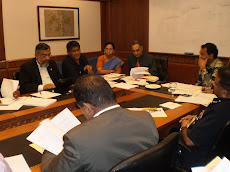


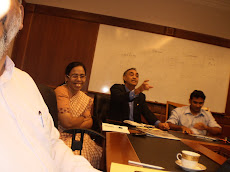

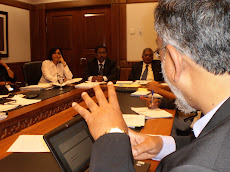
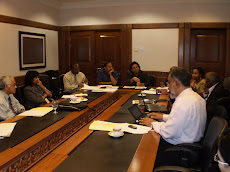
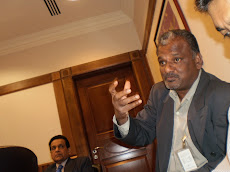
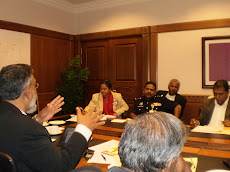
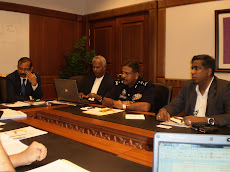

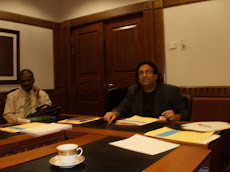
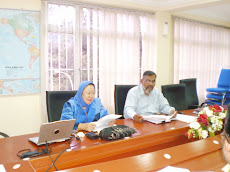

I read all the postings above and find the word "GAP" mentioned a couple of times, hope this gap can be narrowed immediately before the 11th malaysia Plan Working Group Discussions is held.
ReplyDeleteI fear that the real staistics could be worse than that shown to public.